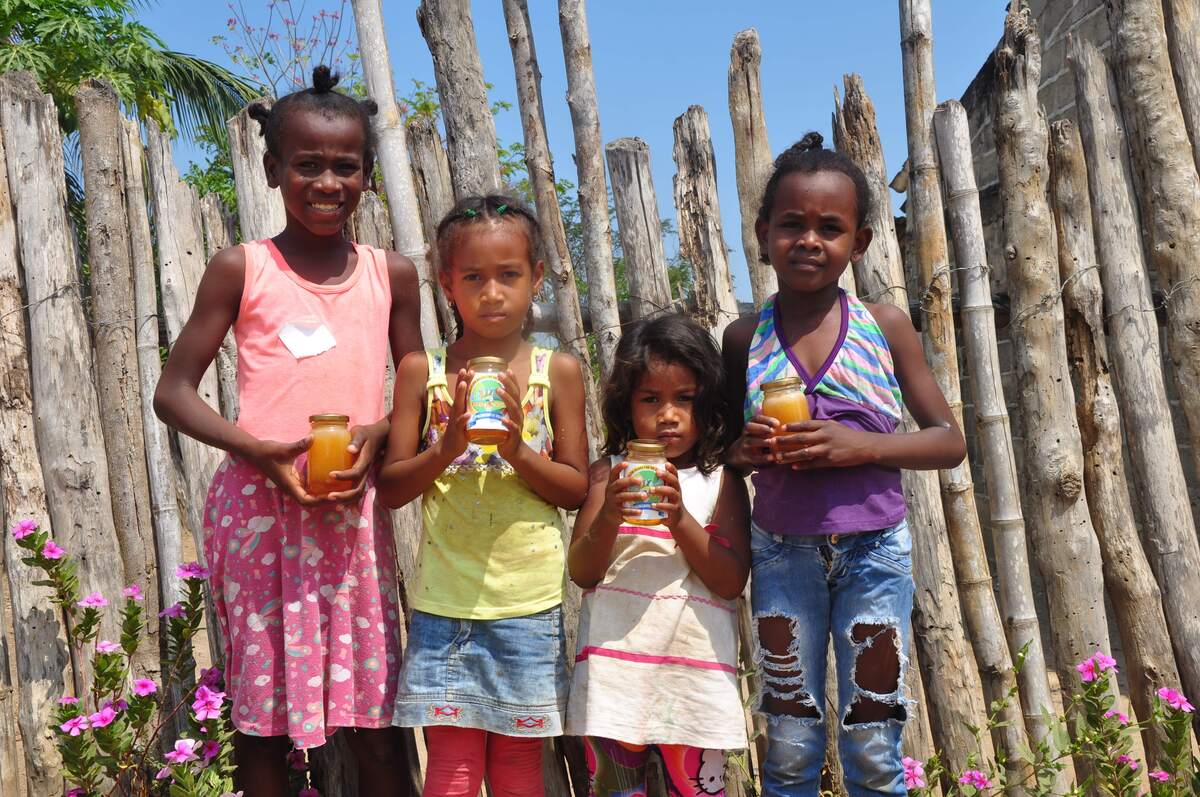Shifting mindsets through environmental conservation projects
Story

As a biologist, Sebastián Martinez is continually thinking about the interconnectedness of all living things and how within a specific ecosystem, each organism depends on many others for survival. Of course, he is also thinking about how human actions impact the environment, and the part they play in that interconnectedness.
“As scientists, we can do whatever quantity of work – plant a million mangroves, as an extreme example – but if we don’t work in education and in communities, then we’re doing nothing,” says Sebastián. “Science is very limited on its own.”
This is why as a Cuso International volunteer with Parques Nacionales in Colombia, Sebastián works closely with local communities in a participatory way to increase environmental management and conservation efforts. In particular, he has focused on raising awareness about women’s contributions in the fishing industry and how their work and advocacy for gender equality are crucial in strengthening climate resiliency and conservation efforts.
For example, in the coastal region south of Cartagena, Sebastián – who was born in Colombia but moved to Canada when he was 12 years old – has been working with local communities who largely rely on fishing and mangrove logging to earn income and feed their families. The men do the fishing in these communities, while the women clean and prepare the fish for market.
Along with his counterparts at Parques Nacionales, Sebastián began to understand, through workshops and discussions, that the women were the knowledge keepers. They knew what species were being caught, and the sizes of the fish, but they were not given opportunities to share their knowledge, and overall, their work was not seen as valuable.
“The fishermen were not aware of the size and types of fish they were catching – but the women had this information, precise statistics that are very important,” says Sebastián, noting that overfishing, and catching too many smaller fish of any species, is detrimental to the overall population. “When women have more of a say, more of a voice, they can direct the men to fish in different ways. This helps with the environmental conservation efforts.”
Documenting the labour of women in these communities is crucial, so that information can be shared with municipal and conservation authorities. Improving communications with local authorities is underway, Sebastián says, with support from Cuso International staff in Colombia.
“The women are proud of the work they are doing and when they have a say, they become part of the larger decision-making process,” he says.
At the same time, Sebastián and his colleagues have been working with members of the local communities to encourage them to move away from intensive fishing and logging, which has a severe impact on the region’s fish populations and biodiversity. After speaking with a group of local fishermen, Sebastián began offering workshops in beekeeping – a field he had experience in back in Canada – to provide an alternative income generation opportunity.
Sebastián forged a close friendship with one of those fishermen, Raúl Blanco, who lives with his family close to El Corchal Sanctuary (protected area) south of Cartagena. He has fished and logged for many years to feed his family, including two young daughters.
“Raúl had to log and fish to survive, but he could also see that there was no future in these industries for him, and for his kids,” says Sebastián. Raúl was selected to participate in the beekeeping program, which provided the fishermen with classes and learning resources, as well as the beehives, tools, and bees to get started.
“Raúl really liked beekeeping from the beginning. He likes the bees, respects the bees, and he has done very well,” says Sebastián. “He is a leader, and is very eager to learn more. Now his primary revenue is from beekeeping and selling the honey, and he only logs and fishes a little. He is an example for his community on how this can be a sustainable and profitable alternative to logging and fishing.”
Sebastián notes that often, it just takes one person, like Raúl, to shift perceptions and become a change agent within a community. With respect to beekeeping, there was hesitation within the community about bees in general, and about making it a profitable source of income. Once they saw Raúl’s success and positive outlook, they became more interested and willing to move away from fishing and logging.
“I am only one person and can only work with so many people at one time, but even so, there is big potential for change,” says Sebastián. “If you change one person’s mindset, then it will repeat itself within the community.”
For Sebastián, who has been volunteering with Cuso International in the region for four years, the success of these initiatives and the relationships he’s cultivated make him feel part of the climate change solution.
“I enjoy working with people and giving back to my home country, making change for the better,” he says. “And I am learning so much. They are learning from me and I am learning so much from them. It is very rewarding to see the impact on people’s lives and how we can help to make things better over time.”